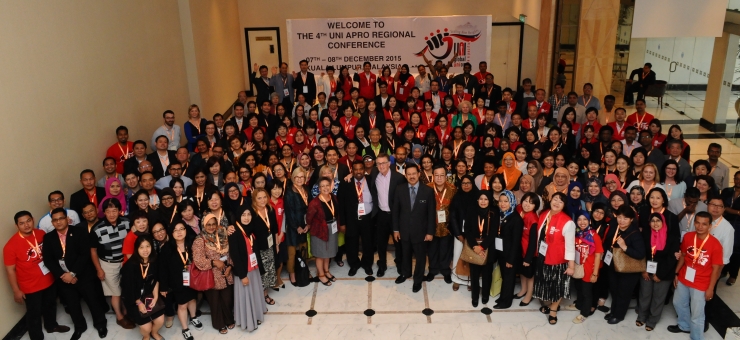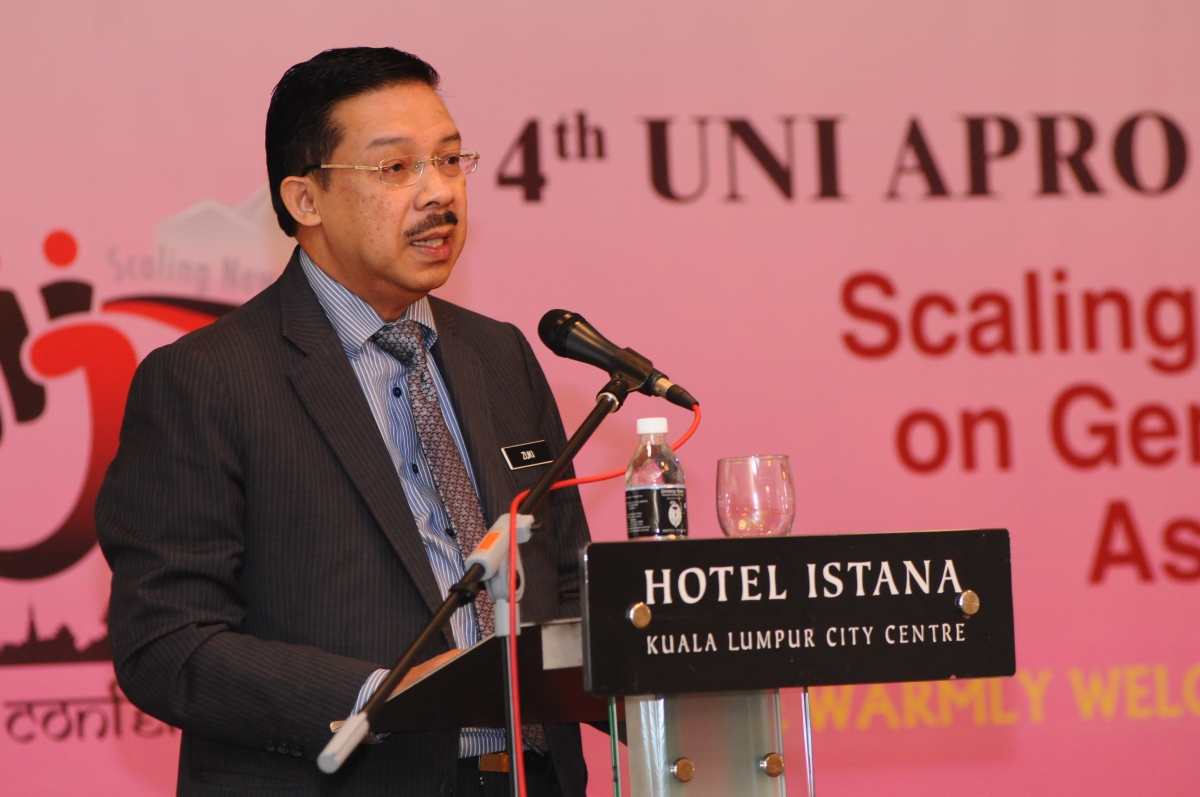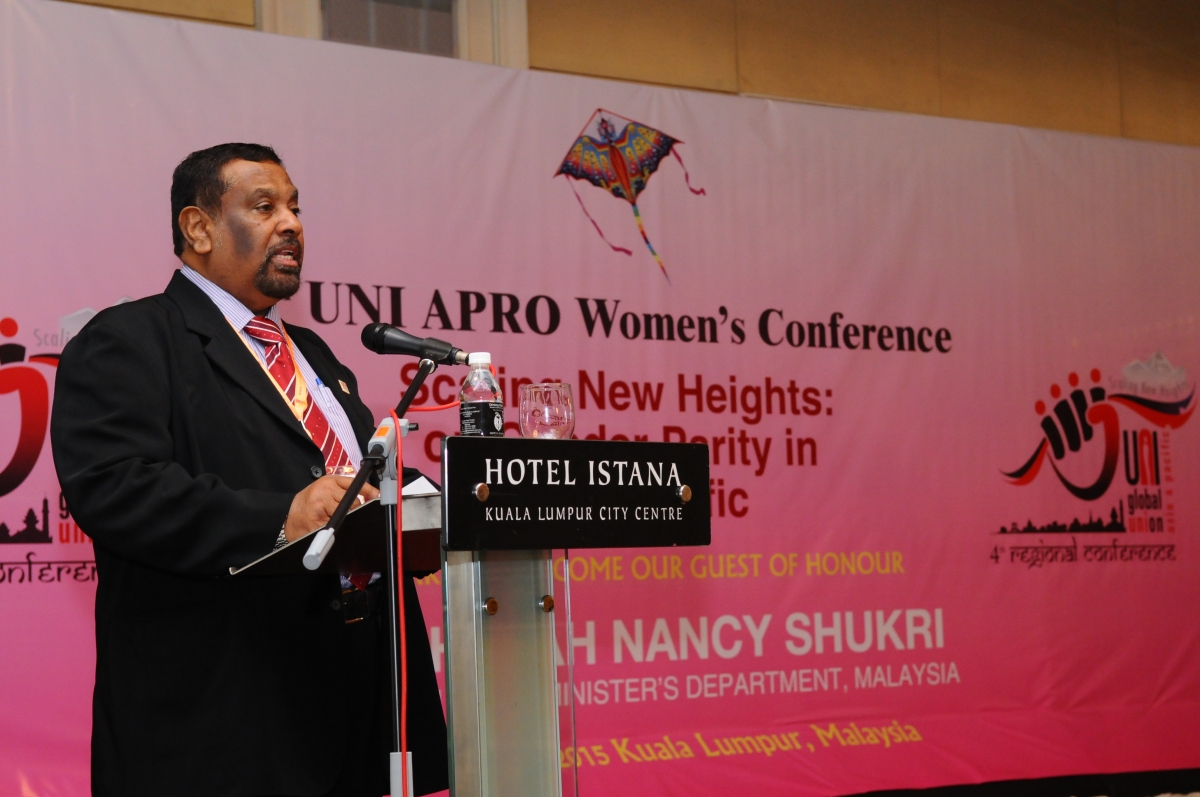Scaling new heights on gender parity in Asia and Pacific region

More than 200 women activists and trade union leaders gather from all over Asia Pacific region and beyond
The 4th UNI APRO Regional Women’s Conference in Kuala Lumpur was opened by the Honourable Datuk Mohd Zuki bin Ali, Director General of the Legal Affairs Division representing Y.B Hajah Nancy Shukri, Minister in the Prime Minister’s Department, Malaysia.

Hon. Datuk said in his opening remarks, “Society can only develop sustainably when men and women have equal power to shape their own lives and contribute to family and communities. Therefore Gender Equality is more than an ideal or a goal. As pointed out by the former Secretary General of the United Nations, Kofi Annan: “It is a precondition for meeting the challenge of reducing poverty, promoting sustainable development and building good governance”
While there have been some progress in closing the gender parity gap in some countries, the fact remains that there are still much to be done and challenges to overcome, particularly the gender-specific constraints. This include access to more and better decent jobs, reducing women’s disproportionate responsibility for unpaid work and eliminating legal discriminations.
In Malaysia, the Federal Government of Malaysia is committed in emancipating and empowering the women in the government and corporate sectors. Towards this end, the Ministry of Women, Family and Community Development are working on raising the social awareness about the importance of women's role in shaping the family unit, social unity and the development of society and the nation. “
UNI MLC Malaysia President Mohamed Shafie BP Mammal, said, “Studies show that women are the most affected by the high incidence of vulnerable employment in Asia. A recent study on non-standard employment in ASEAN countries highlighted that women are overrepresented in outsourced and contract work and often lack access to social protection. Inevitably this situation pushes working women to live in poverty in the region. Therefore equitable and sustainable development and the advancement of decent work for women are crucial.”


